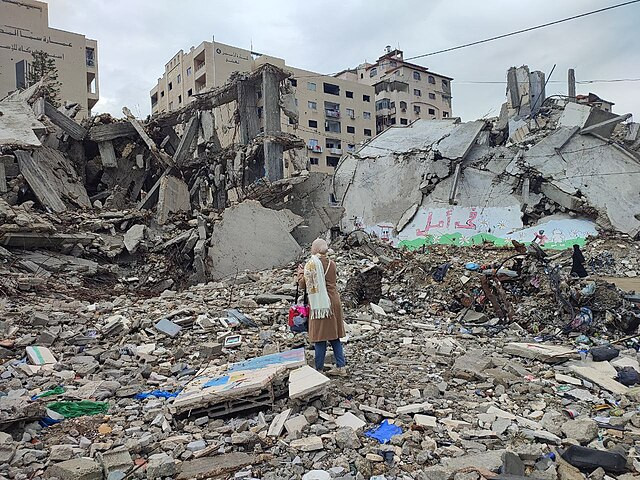Israel is reviewing Hamas's latest response to a U.S.-backed Gaza ceasefire proposal that could establish a 60-day truce and secure the release of dozens of hostages, officials said Tuesday. The move comes as Israel prepares for a new offensive in Gaza City, raising pressure from international mediators to halt the fighting.
The plan, advanced by U.S. special envoy Steve Witkoff and supported by Egypt and Qatar, would include the release of 10 living hostages and 18 deceased, alongside the freeing of 200 Palestinian prisoners. Hamas is also seeking the release of additional Gaza detainees, Egyptian officials confirmed.
A Hamas official told Reuters the deal requires a partial withdrawal of Israeli forces-now in control of about 75% of Gaza-and greater access for humanitarian aid. Qatar's Foreign Ministry spokesman Majed Al Ansari described the proposal as "a pathway to a comprehensive agreement to end the war."
Israeli Prime Minister Benjamin Netanyahu has yet to deliver a formal response. Two Israeli officials said discussions within the government would take place in the coming days, while a Palestinian source close to the talks said an answer was expected by week's end. Netanyahu is under pressure from both domestic protesters calling for a deal and hardline ministers, including Bezalel Smotrich and Itamar Ben-Gvir, who oppose any truce and demand Hamas's defeat.
Tens of thousands of Israelis rallied Sunday in some of the largest protests since the war began, demanding the government prioritize the release of remaining hostages. "We are ready for trilateral," President Volodymyr Zelenskyy of Ukraine said of the broader diplomatic framework, after meeting U.S. and European leaders in Washington.
On the battlefield, Gaza health authorities reported at least 20 Palestinians killed Tuesday by Israeli airstrikes and artillery fire in Gaza City and its suburbs. Tanks advanced into Zeitoun and pounded Sabra, with medics saying several families were trapped in their homes. "It has been one of the worst nights in Sabra and Gaza City as the explosions are heard throughout the city," said resident Nasra Ali, 54.
Diplomats say Hamas has softened some demands. Arab officials noted the group had reduced its request for prisoner releases to around 140-150, closer to Israel's prior offer of 125. Hamas also eased its buffer-zone stance, accepting a perimeter of 800-1,000 meters compared to Israel's preferred 1,000-1,200 meters.
Still, key differences remain. Netanyahu said after a visit to Israeli forces in Gaza that Hamas must be disarmed and removed from power. "I, like you, hear the media reports, and from them you can sense one thing-Hamas is under immense pressure," he told soldiers. He emphasized Israel's core demands: returning all hostages, demilitarizing Gaza, and establishing a civilian administration excluding Hamas and the Palestinian Authority.
Hamas official Izzat El-Reshiq said the group views the current framework as an interim accord that could lead to broader negotiations. But sources told CNN that Hamas wants written guarantees from the United States to ensure Israel does not resume hostilities once the 60-day truce ends.
The conflict began when Hamas-led militants killed 1,200 people and took 251 hostages in Israel. Since then, Israeli operations have killed more than 61,000 Palestinians, according to Gaza health officials, and displaced the majority of the enclave's 2.2 million residents.






